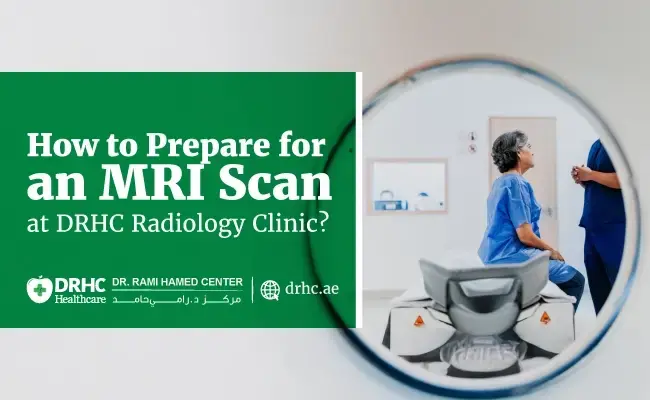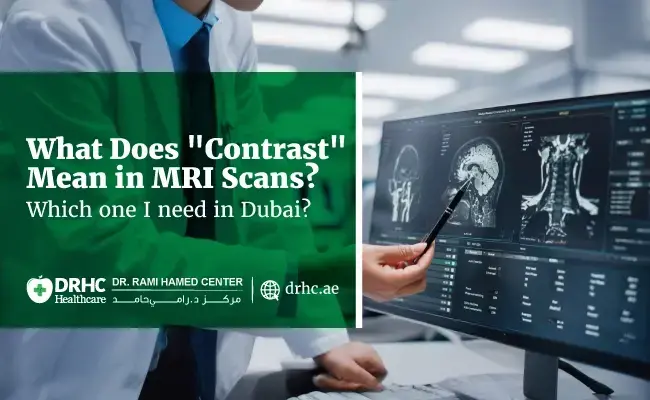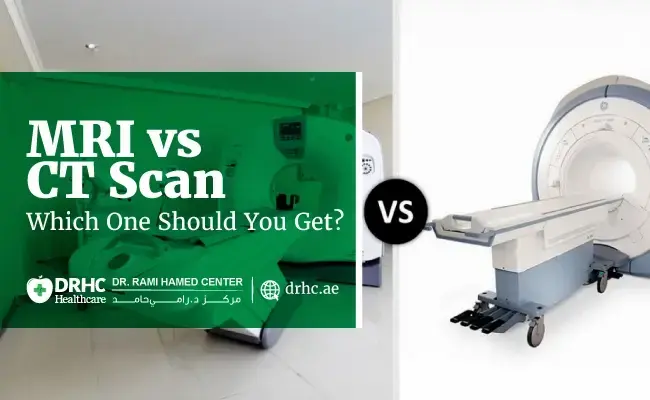
When facing the possibility of a tumor in the small intestine, it's natural to feel concerned. The small bowel is a challenging area to examine, and many patients worry about needing invasive procedures or surgery just to get answers. Fortunately, medical technology has advanced significantly, allowing us to evaluate the small intestine using non-invasive imaging techniques—no cuts, no scopes, and no long recovery times.
At Dr. Rami Hamed Center (DRHC) in Dubai, we prioritize patient comfort and safety. Through state-of-the-art diagnostic imaging, our specialists can accurately assess the small bowel for tumors and other abnormalities without the need for immediate invasive procedures.
What Are Small Bowel Tumors?
The small intestine plays a key role in digestion, but because of its location and length, it's a difficult area to examine thoroughly. Tumors in the small bowel may be benign (non-cancerous) or malignant (cancerous), and they can sometimes grow silently—without clear symptoms—until they cause issues like bleeding, pain, or blockage.
Common symptoms that may raise concern include:
- Unexplained abdominal pain
- Ongoing nausea or vomiting
- Weight loss without a clear reason
- Blood in the stool
- Anemia (low red blood cell count)
If you’re experiencing any of these symptoms, it’s important to seek medical advice promptly. At DRHC Dubai, our specialists are experienced in evaluating these signs thoroughly and compassionately.
What Is Non-Invasive Imaging?
Non-invasive imaging refers to tests that allow doctors to see inside the body without surgery or internal scopes. These methods use advanced technologies like MRI, CT scans, and capsule endoscopy to capture detailed images of the small bowel, helping detect any suspicious growths or abnormalities.
Let’s explore the most common options:
1. Magnetic Resonance Enterography (MRE)
What it is:
An MRI technique specially designed to visualize the small intestine using magnetic fields and contrast agents (not radiation).
Why patients prefer it:
- No radiation exposure
- Highly detailed images
- Safe for repeated use
- Comfortable and painless procedure
How it works:
You’ll drink a contrast liquid and lie down for the MRI scan. The machine creates detailed images of the small bowel, helping identify tumors, inflammation, or narrowing.
Common concerns:
- Will it hurt? – No, MRE is painless.
- How long does it take? – Typically around 30–45 minutes.
- Is it safe? – Yes, especially for those who need multiple scans.
2. CT Enterography
What it is:
A specialized CT scan that uses contrast material and X-rays to visualize the small bowel.
Benefits:
- Fast and accurate
- Good for detecting bleeding or tumors
- Widely available
Things to know:
T enterography involves a small amount of radiation. However, the benefits often outweigh the risks, especially when quick results are needed.
3. Capsule Endoscopy
What it is:
A swallowable, pill-sized camera that travels through your digestive system and takes thousands of pictures.
Why it’s useful:
- Non-invasive
- No sedation needed
- Excellent for viewing the inner lining of the small intestine
What patients ask:
- Do I feel the camera? – No, it's painless.
- What happens after I swallow it? – It passes naturally through your system.
- Is it safe? – Generally, yes, though not recommended for patients with suspected blockages.
Which Imaging Option Is Right for You?
Your doctor at DRHC Dubai will help determine the most appropriate test based on your symptoms, medical history, and risk factors. In some cases, more than one imaging method may be recommended for a complete evaluation.
Explore Our Related Blogs
- Why Women with Breast Implants Should Consider an MRI
- Can MRI Help Diagnose Infertility Causes?
- What is MRI Enterography, and When Is It Recommended?
- IBD or Crohn’s? Why MRI is Better than Colonoscopy Alone
Frequently Asked Questions
Q: Do I need to stay in the hospital for these tests?
A: No. These are outpatient procedures, meaning you can go home the same day.
Q: Will I need anesthesia?
A: No anesthesia is required for any of the imaging options mentioned above.
Q: Can imaging replace biopsy or surgery?
A: Imaging helps detect and localize tumors, but in some cases, a biopsy or surgery may still be needed for confirmation and treatment planning. However, non-invasive imaging helps guide these decisions with greater accuracy and less risk.
Compassionate and Comprehensive Care at DRHC Dubai
We understand that the thought of a tumor—especially one in a hard-to-reach place like the small intestine—can be overwhelming. That’s why at DRHC Dubai, we offer a complete range of diagnostic tools tailored to your needs, all under one roof. Our team works closely with you to ensure clear communication, minimal discomfort, and a fast path to answers.
If you’ve been experiencing persistent abdominal symptoms or if you’ve been advised to investigate possible small bowel tumors, don’t wait. Schedule a consultation at DRHC today and let us guide you with care, expertise, and state-of-the-art technology.
Your health matters—let’s find answers together, the safest way possible.
📞 +971 4 279 8800
🌐 www.drhc.ae
📍 Dubai Healthcare City, Building 52









Leave a comment